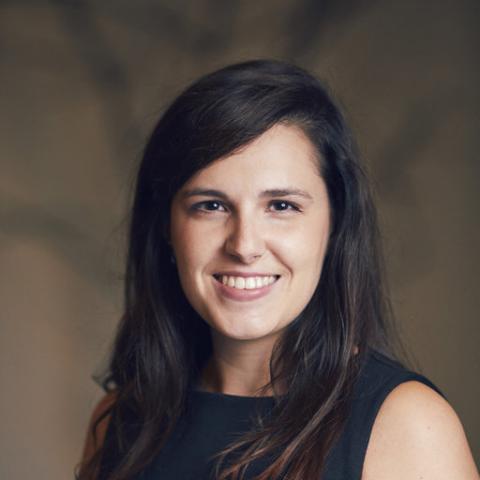Community-engaged, Applied, Methods, Psychology, Educational Research (CAMPER) Lab
CAMPER Lab presents an opportunity to think about your MA research experience in a novel way. CAMPER Lab utilizes a cohort model that develops your knowledge and skill set related to research methods, statistics and educational measurement, as well as cognitive, and social psychology. The cohort model engages you in an academic community through shared coursework and regular meetings with faculty from QME as well as Psychological Foundations of Education to help you develop as a scholar and researcher. Meet your future advisors and lab co-facilitators here: Chelsey Legacy, Andrew Zieffler, and Martin Van Boekel.
The cohort will also pair with a community partner (e.g., school district, not-for-profit organization) to undertake a shared research project. With the support of your M.A. mentors, you will work together with that partner to deep-dive into the research problem, by reading and synthesizing relevant literature, planning out the research process, and collecting and analyzing the data. This work will serve as the basis for your M.A. Paper. The program culminates with you presenting your findings to the community partner, relevant stakeholders, and other faculty in the program.
Experiences like these will allow you to engage in research that will have immediate use for the stakeholders. On a more personal level, they will set the stage for a robust research portfolio that can be used when applying for jobs, or compelling research experience that will aid in your application to PhD programs.
Partnership with Bloomington Public Schools
One of our current community partners is Bloomington Public schools. Our collaboration has led to a partnership with the computer science department in the district, where we are collectively exploring how their computer science classrooms shape students’ identity, belonging, and interest in computer science. Students in the CAMPER Lab have, in collaboration with the district, developed different survey tools, and engaged in large scale collection of relevant data. In order to do this, they met regularly with teachers and administrators in the district, observed classes, and interviewed teachers.
Results from students’ work will help BPS highlight the successes of their computer science program and identify opportunities for growth. In addition, the work will contribute to the larger body of knowledge surrounding computer science education in younger populations. Students in the cohort will be presenting their work at conferences and to district stakeholders.
More information
Coursework
CAMPER Lab extends the cohort model beyond the research project to your coursework. We would like the cohort model to extend to class selection as well. Therefore we encourage all students involved in the lab (regardless of their program) to take several courses in Psychological Foundations and QME. These courses will help lay a strong theoretical foundation for success in the workforce or in further graduate study.
Year 1
In the first year of your participation in the CAMPER Lab you will be mostly focused on coursework to build the foundations for the community-engaged work that you will undertake in Year 2. You will also propose an MA project in alignment with the community partner’s needs.
Coursework includes:
- Introduction to Research in Educational Psychology and Human Development
- Principles of Educational and Psychological Measurement
- Psychology of Student Learning
- Research Problems: Educational Psychology
- Social Psychology of Education
- Statistical Methods in Education I
- Statistical Methods in Education II
Year 2
In the second year of your participation in the CAMPER Lab you will take more advanced courses (see coursework below). In addition, you will complete a MA project in conjunction with the community partner.
- Survey Design, Sampling, and Implementation
- Qualitative Methods in Educational Psychology
- Research Problems: Educational Psychology
- Two elective courses selected with consultation with advisors
Careers
- Research associates at universities
- Research scientists at companies
- Data analyst
- Evaluation specialist
- Researchers in:
- Government agencies
- Research and development centers
- Other educational settings (e.g., K-12 school research offices)
Tuition, funding, and financial aid
While it is not common to see funding related information on a research lab page, we made the decision to include it here because we wanted to be transparent about funding and participation in this lab. The CAMPER Lab does not have outside funding, therefore there are no opportunities to support students through paid research assistantships.
Although we cannot provide funding through your participation in this lab, the lab faculty will try to help you find positions and advocate for you. [For those of you unfamiliar with the university funding structure a 25% position (usually a research or teaching position) consists of 10 hours of work per week and includes an hourly wage and some tuition support, while a 50% position is 20 hours per week and includes an hourly wage and tuition being covered]
Here are some resources on tuition and funding.
Tuition
Visit the College of Education and Human Development's Finance and Funding page for information on tuition.
Fellowships and awards
Submit your application materials by the December 1 deadline, and you’ll automatically be considered for Graduate School fellowships and departmental awards based on scholastic achievement. Notification of awards will be sent in March.
Graduate assistantships
Get paid to work as a teaching assistant, graduate instructor or research assistant. Graduate assistantships are available through the department, College of Education and Human Development, and the University.
Note: Applicants who complete their applications by the March 1 deadline will be less likely to receive graduate assistantships than students who meet the December 1 deadline.
Additional funding
Visit the College of Education and Human Development's Finance and Funding page for more information on funding.
Financial aid
Visit OneStop Student Services for more information on available financial aid.
People

Chelsey Legacy
Pronouns: she, her, hers
legac006@umn.edu
Teaching assistant professor

Andrew Zieffler
zief0002@umn.edu
Teaching professor, Distinguished University Teaching Professor

Martin Van Boekel
Pronouns: they, them, theirs
vanbo024@umn.edu
Teaching assistant professor